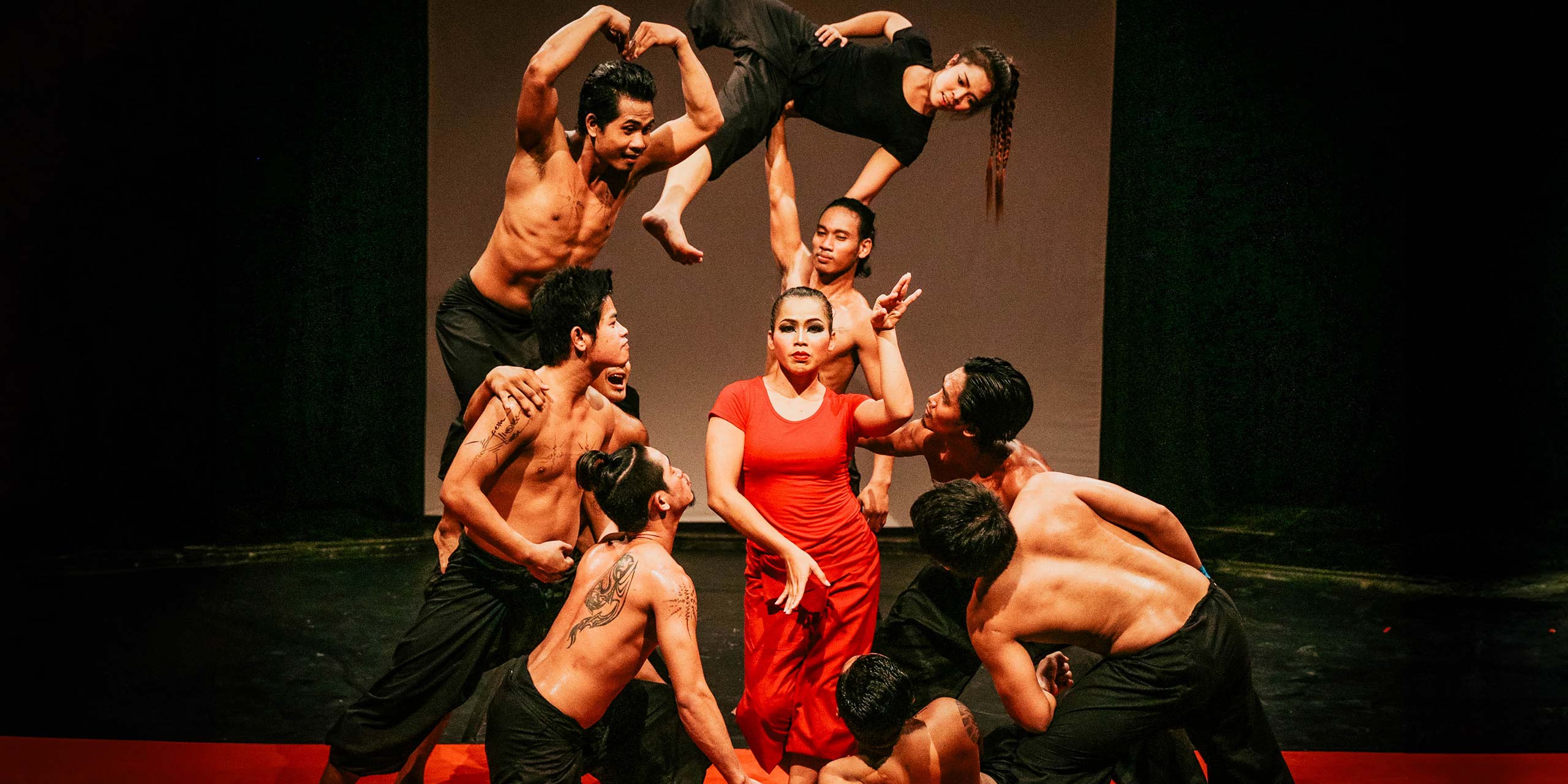
When Cecil Holmes met Moung Tevy, it was in a local food market where Tevy was selling vegetables.
By then, Cecil had retired from his career in education in Northern Ireland and without family ties, decided to make Siem Reap his home in 2011.
After helping build a school and working for an NGO, he volunteered alongside an inspirational monk at the fledgling Life and Hope Association in Wat Damnak, developing its school and shelter for poverty-stricken children and young women.
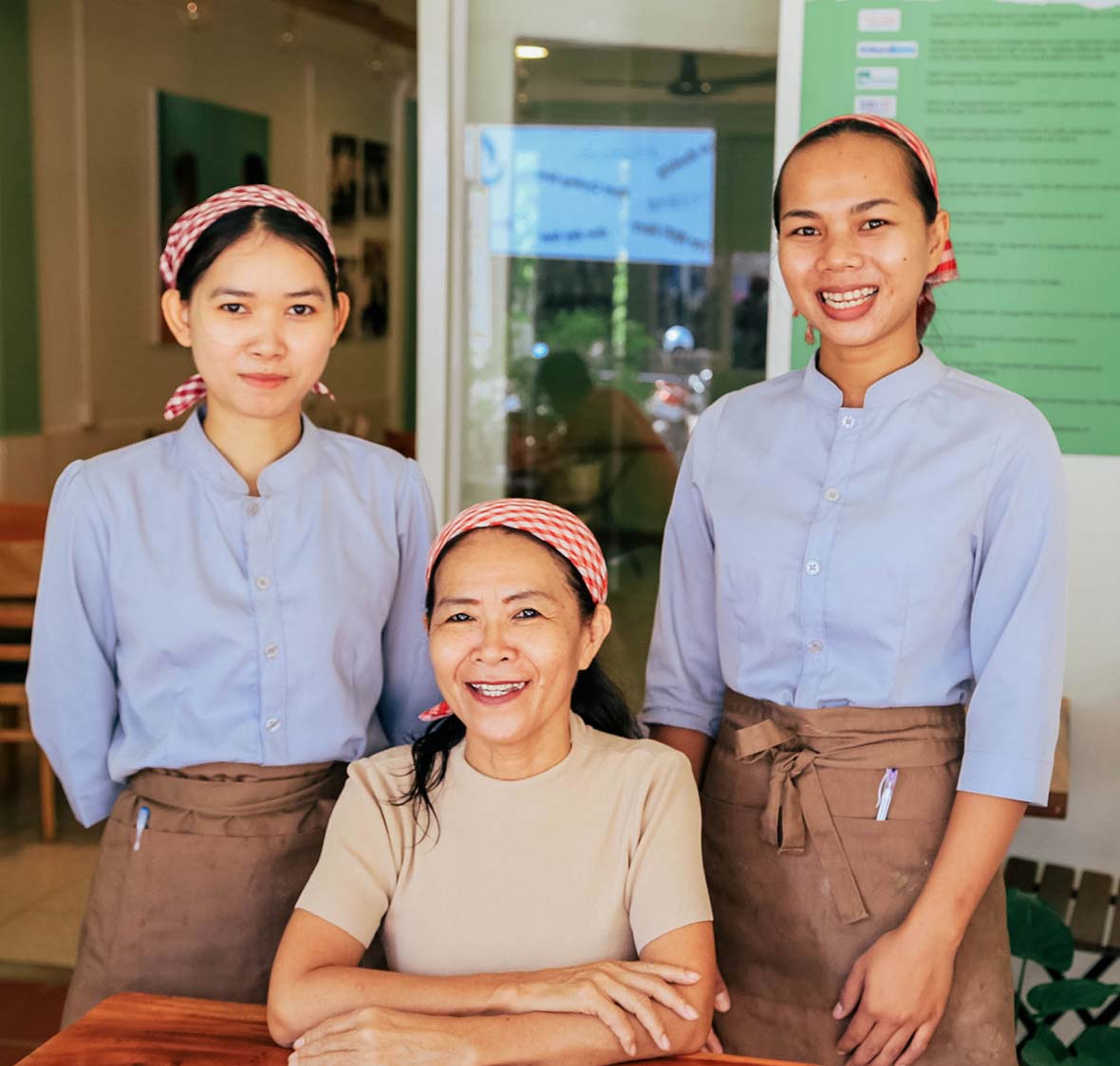
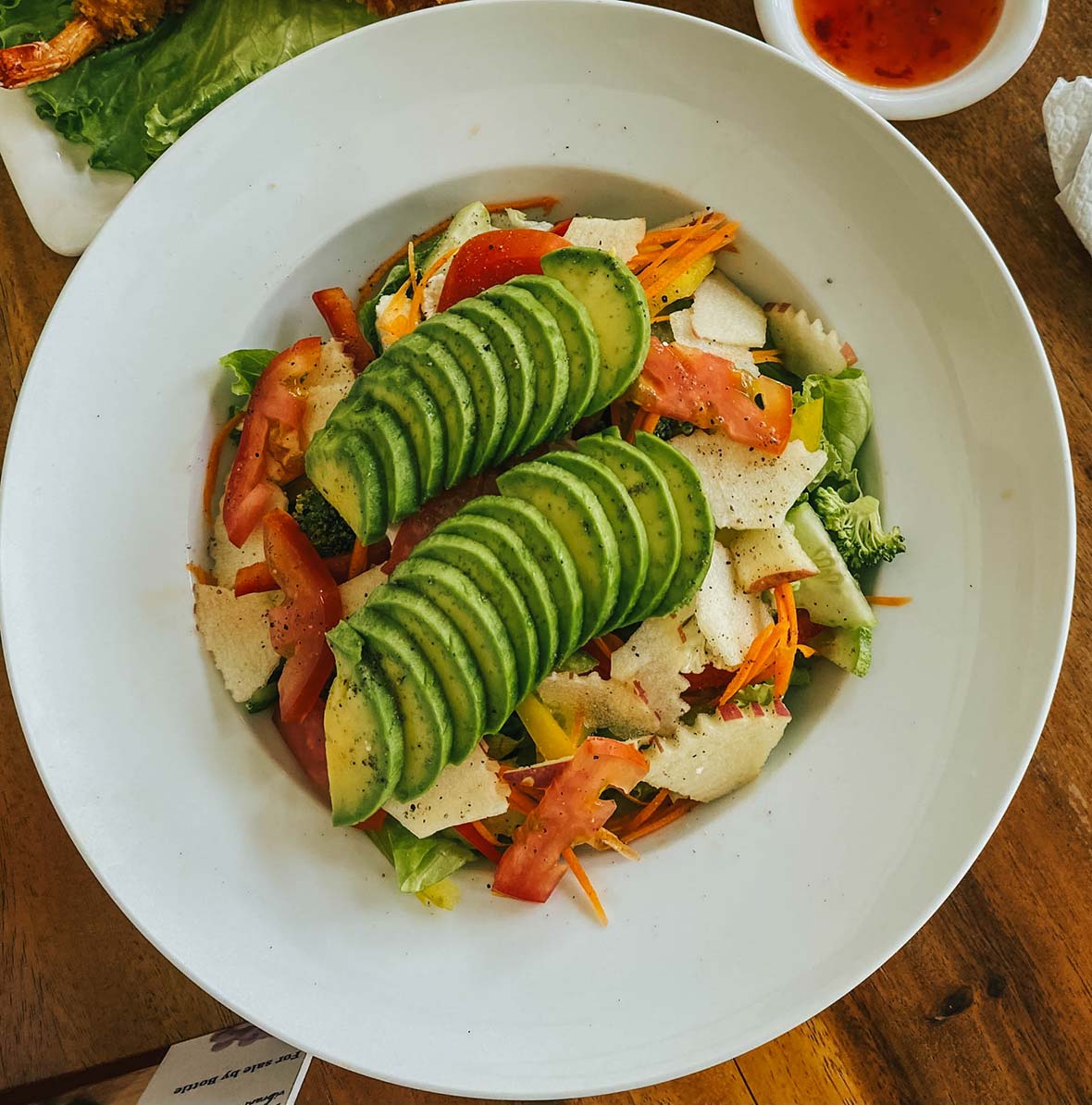
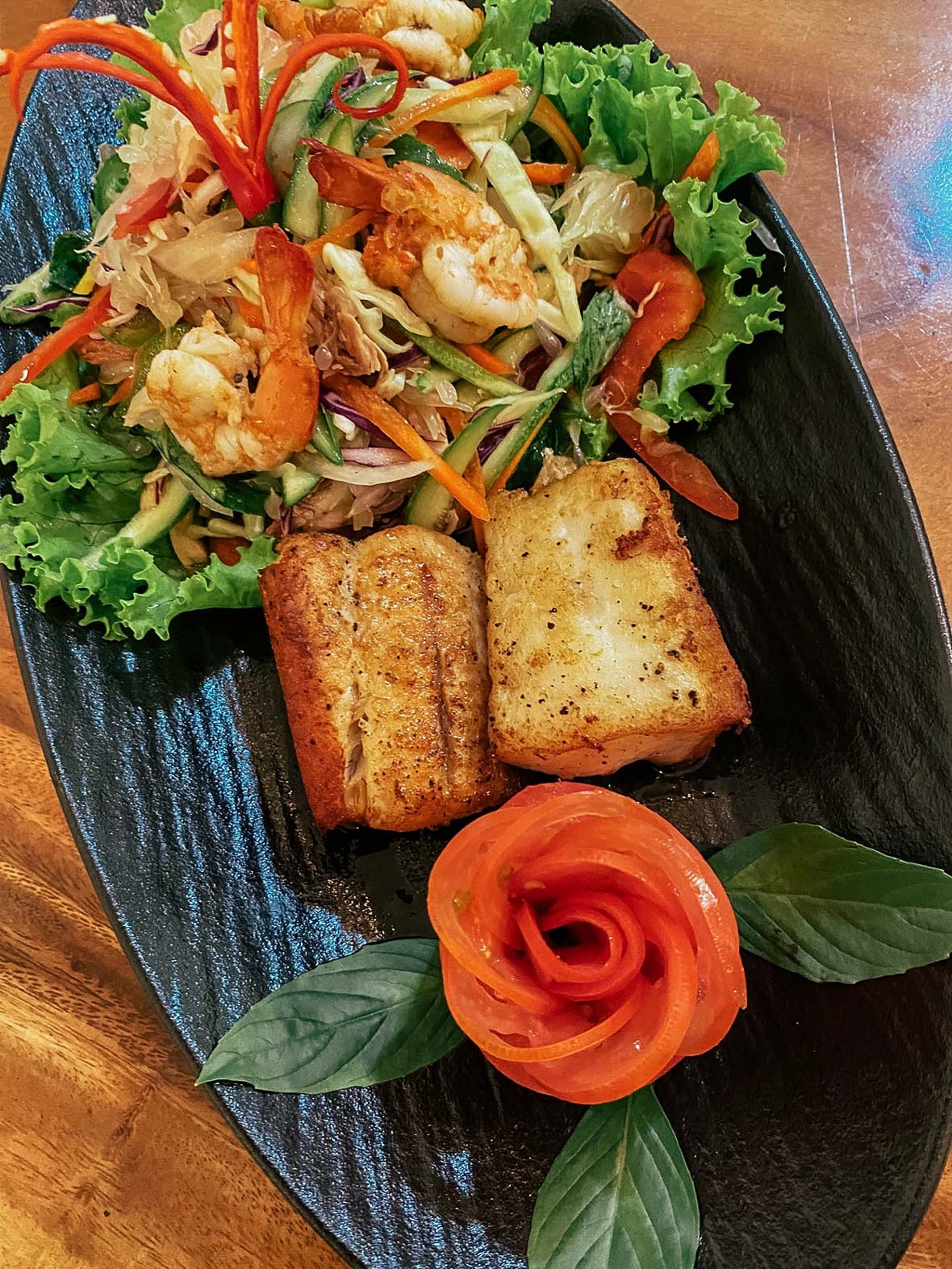
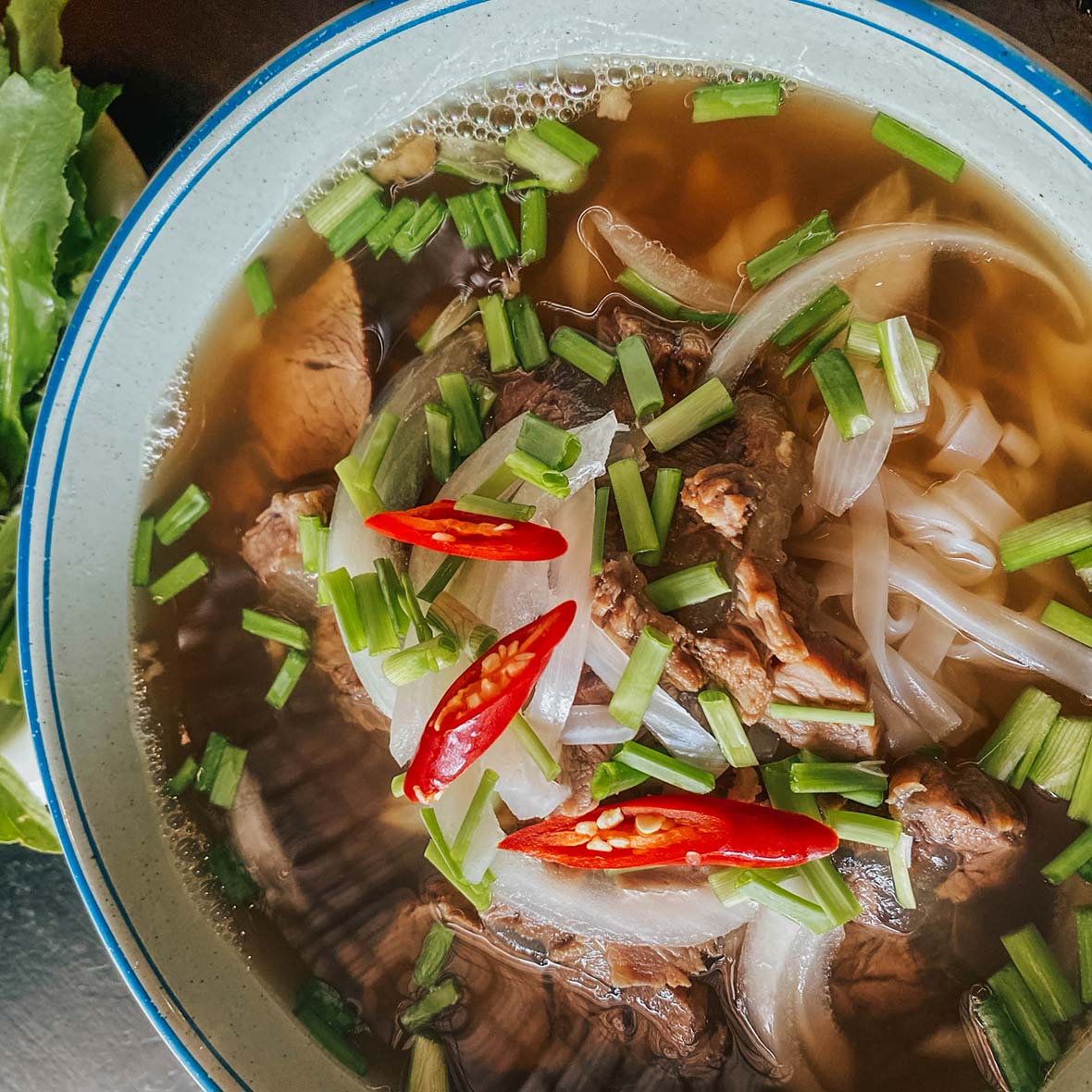
Tevy had known a very different life, one scarred by tragedy and scarcity during Cambodia’s darkest days when the country was ruled by the genocidal Khmer Rouge.
Although her father and three sisters didn’t make it through the nightmarish period, her mother survives today. And it was her cooking that instilled in Tevy a lifelong passion for healthy food—eventually leading her to set up Tevy’s Place in 2018 with Cecil.
Tevy had sold food at a school in her hometown Phnom Penh, but she lost one selling space after another. She relocated to Siem Reap’s Old Market, then to Wat Damnak Gate and finally Street 26, where she remains today.
Tevy and Cecil have linked up with NGO SeeBeyondBorders which aspires to improve education quality in Cambodian primary schools. But their most immediately visible give-back strategy is in empowering young women by training them to cook in the kitchen and serve an ever-expanding customer base.
Cecil humbly describes his life change as one centered on helping local people. “As a volunteer, I feel privileged to be part of the positive change in the families of Tevy and her team as they grow the business,” he says. “With immense courage, [they] serve the community with dignity and a sense of hope for the future.”
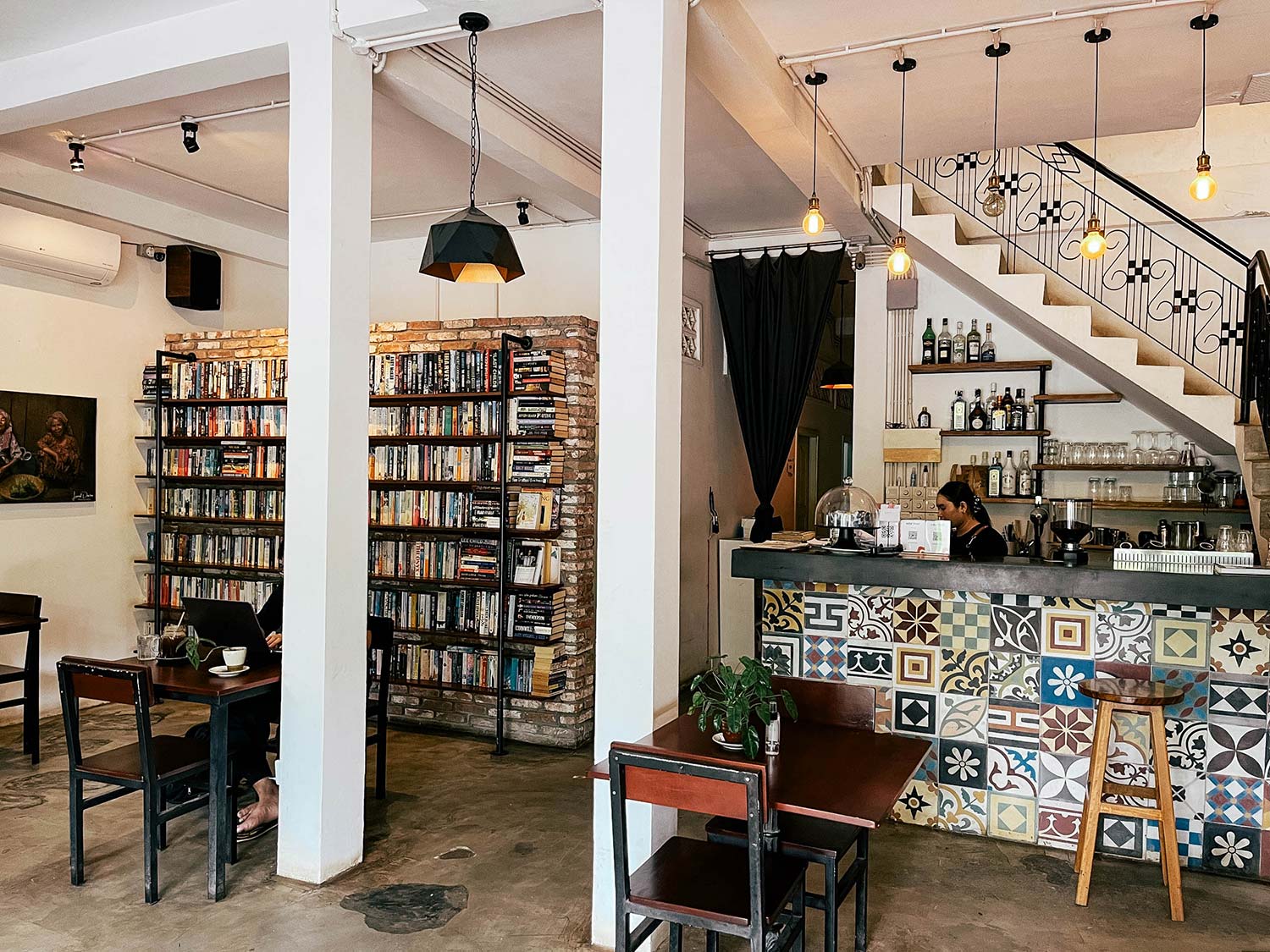
As for Tevy, her delight at the hard-won success of the restaurant is clear: “My initial purpose of starting this restaurant was to have one certain business and just have a decent life. But right now, I not only have a decent livelihood, I can also support my staff and community.”
A stone’s throw from Tevy’s is Footprint Café, a handsome repository of books, art, fine food and excellent coffee that opened in 2016. It was funded initially by backers in the UK including scientist and angel investor Darrin Disley, and overseen by founder Georgina Hemmingway, a former parliamentary researcher.
Over the years it has backed a wide range of good causes helping locals in Siem Reap province. Footprint gives 100% of its profits back to the community as educational and entrepreneurial grants.
A purveyor of fine all-day eating, coffee, locally made herbal tea and even cocktails, Footprint has partnered with social and environmental enterprises Naga Earth, Eco-bodia, Refill not Landfill, Rehash Trash, Siem Reap Food Co-op, Cleanbodia and Soulcial Trust; donated teaching resources to floating village and rural schools; and funded a project making sustainable metal straws while training people with disabilities. Its city clean-ups underscored the café’s commitment to the environment.
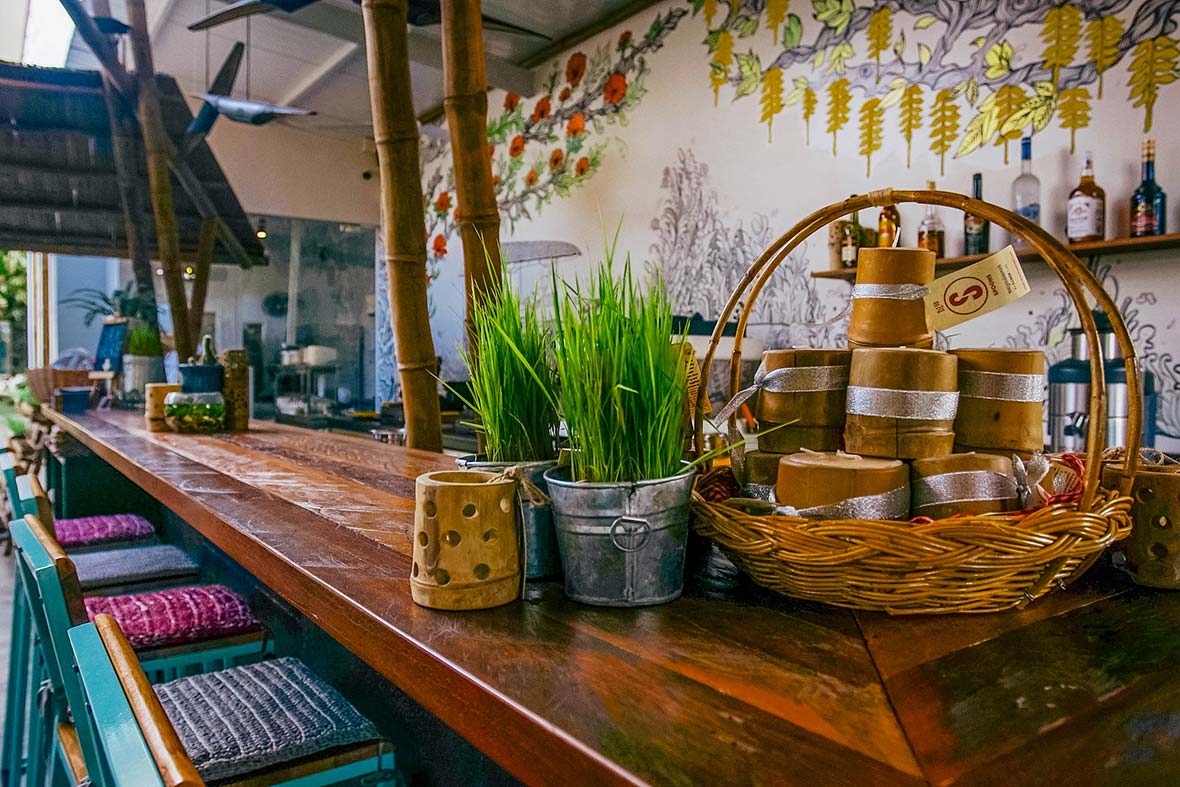
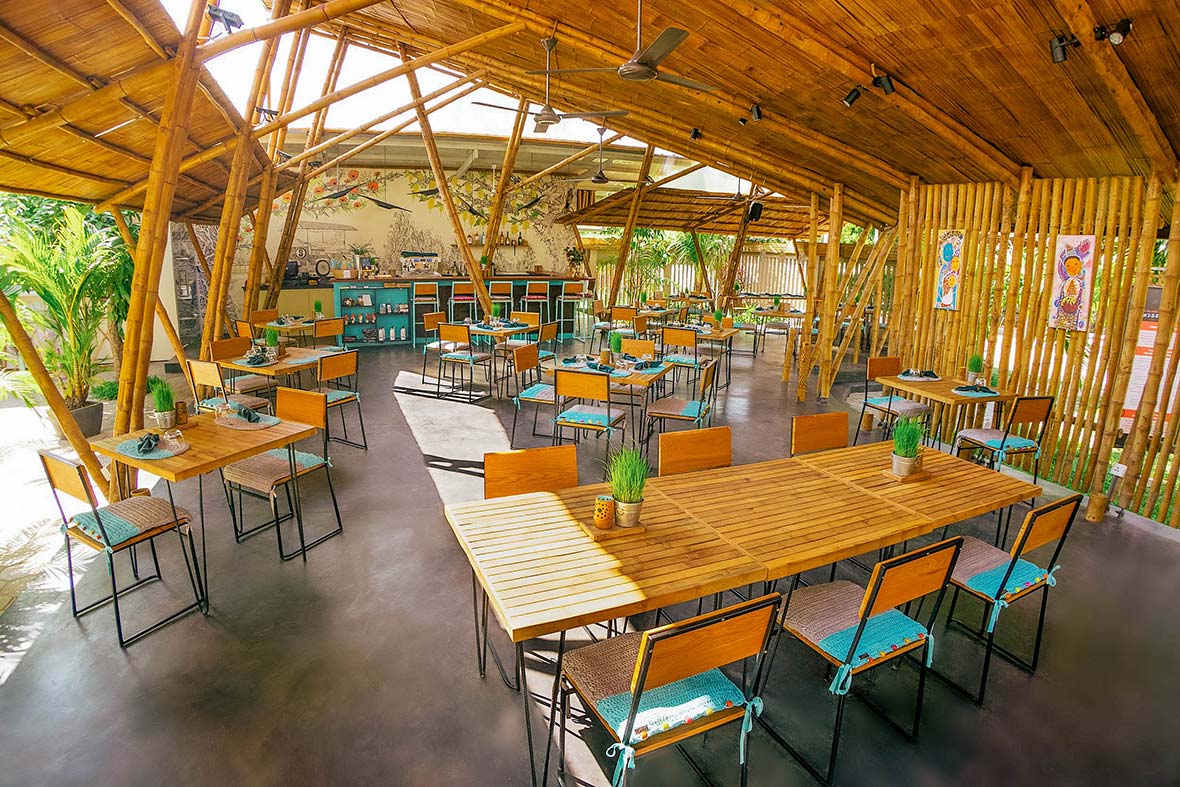
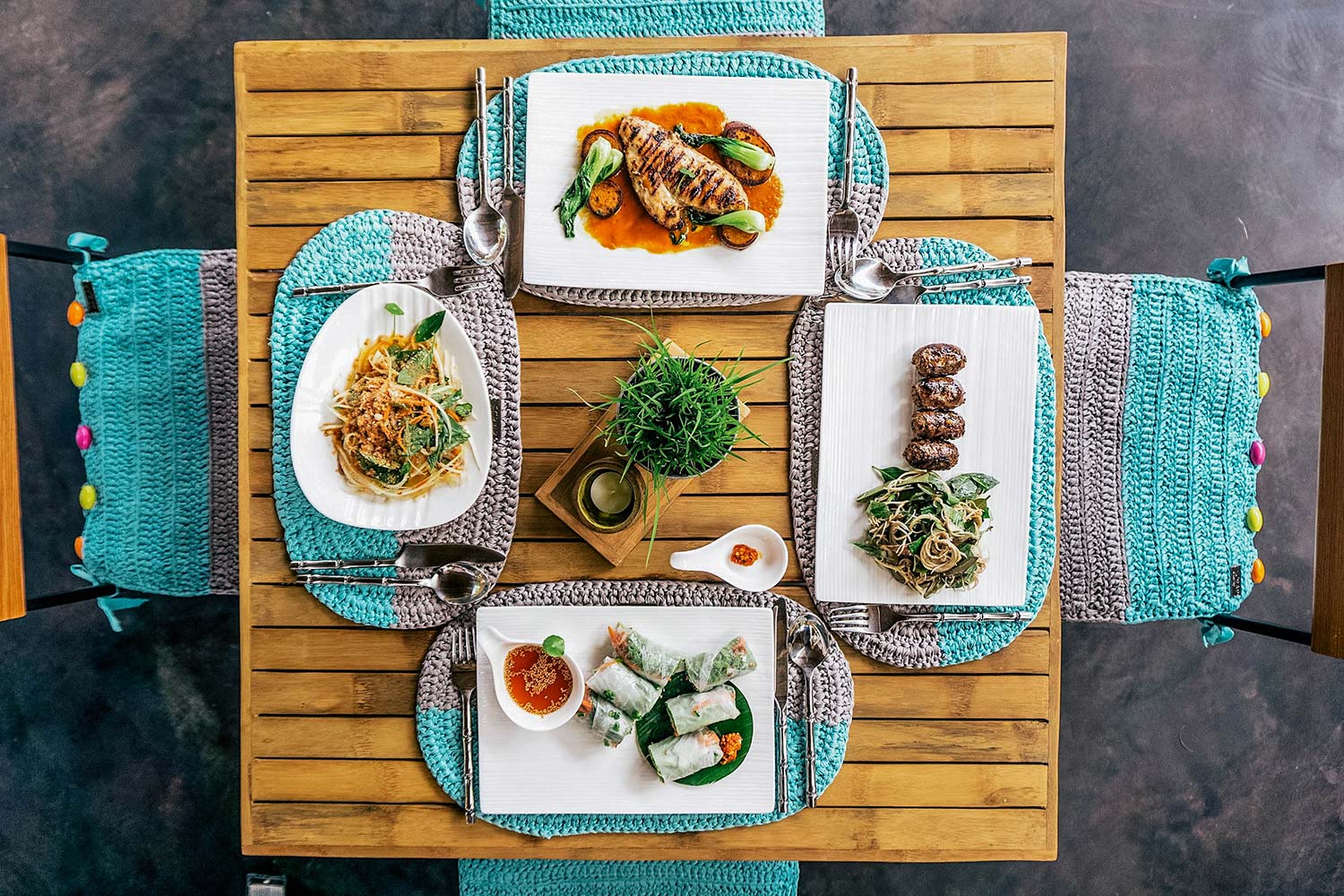
The gorgeous upstairs enterprise café, filled with natural light and striking artworks, is a co-working space also designed for young entrepreneurs to discuss their ideas. Using a model of “People, Planet, Profit”, Footprint has shown how it’s possible to use tourist income to give back to the community and eco-causes, sourcing ethically and locally wherever possible, and aiming to reuse and recycle.
Another highlight of Wat Damnak Village and the cornerstone of the Spoons Cambodia Organization (formerly EGBOK), is Spoons Café and Restaurant which set out in 2009 to help young, disadvantaged students at hospitality schools in Siem Reap. By giving them jobs, housing, financial support and life-skills development—as well as a year-long vocational training course in either hospitality/service or culinary skills—the restaurant’s customer-generated profits go directly towards sustaining the NGO’s work.
An entirely Cambodian-staffed enterprise, Spoons teams up with several notable kitchens across the city including five-star hotels and highly regarded restaurants, while the restaurant’s construction material, design elements and merchandise were made specially by Bambusa Global Ventures.
The mothership’s impressive wooden dome is the most visible signifier of Spoons’ advocacy for sustainable architecture using bamboo; eco-forward initiatives such as reducing plastic, and packing biodegradable, compostable takeaway dishes, underpin the kitchen’s day-to-day practices.
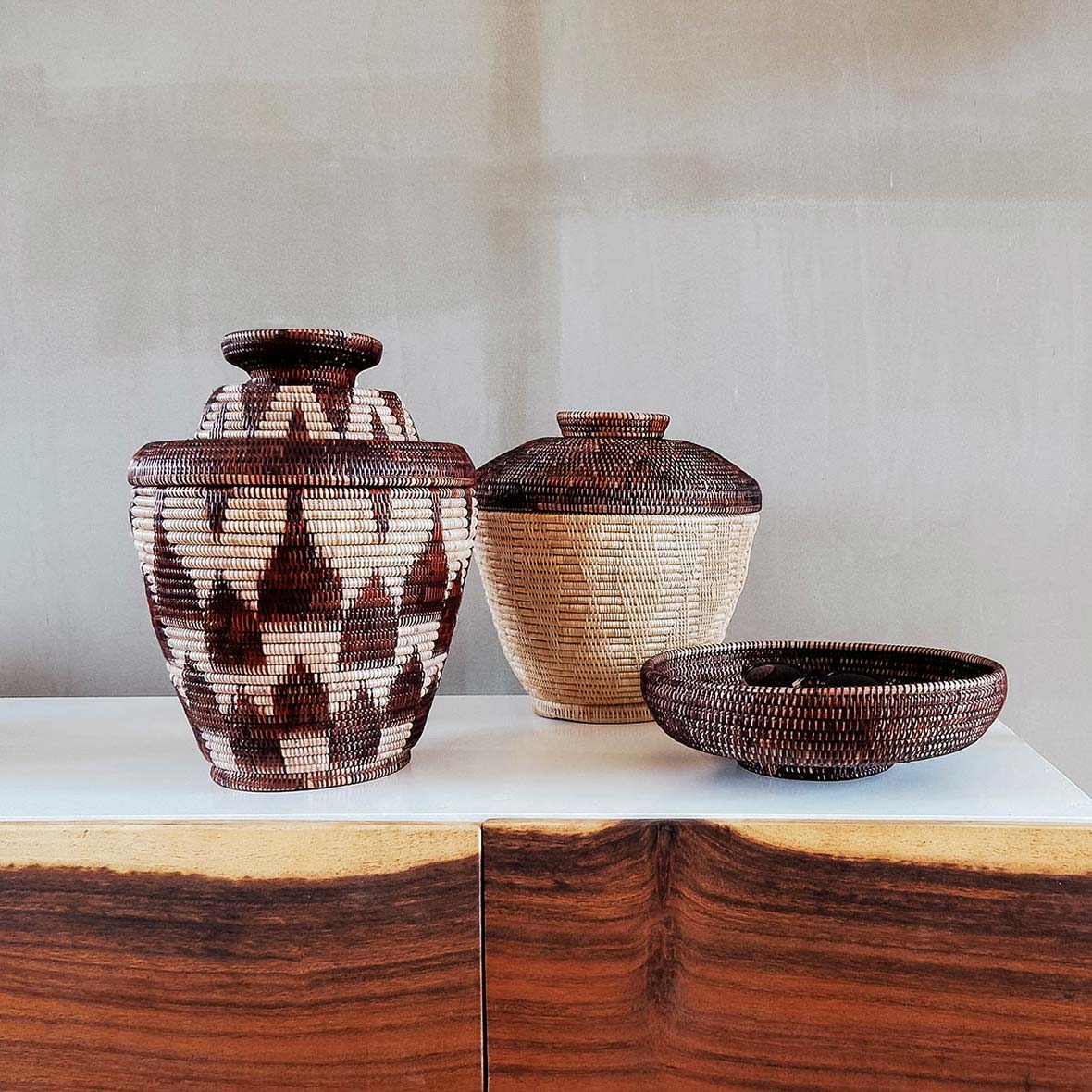
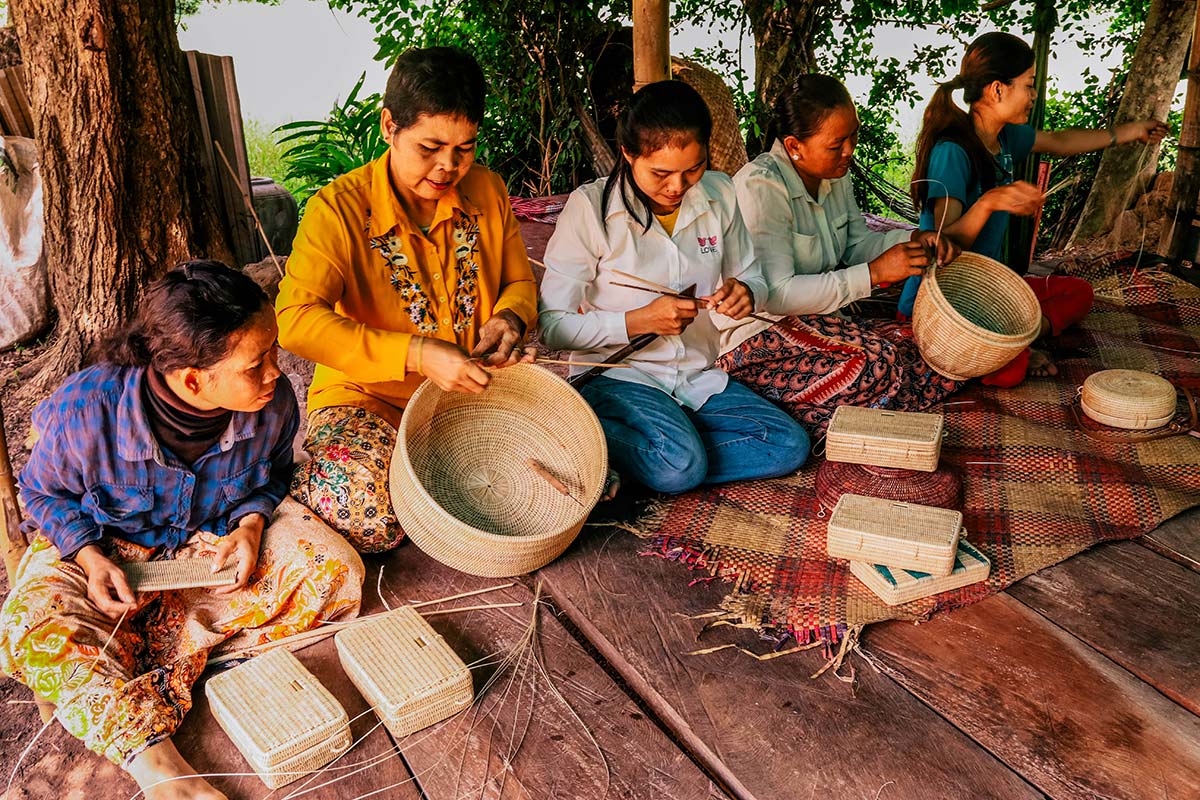
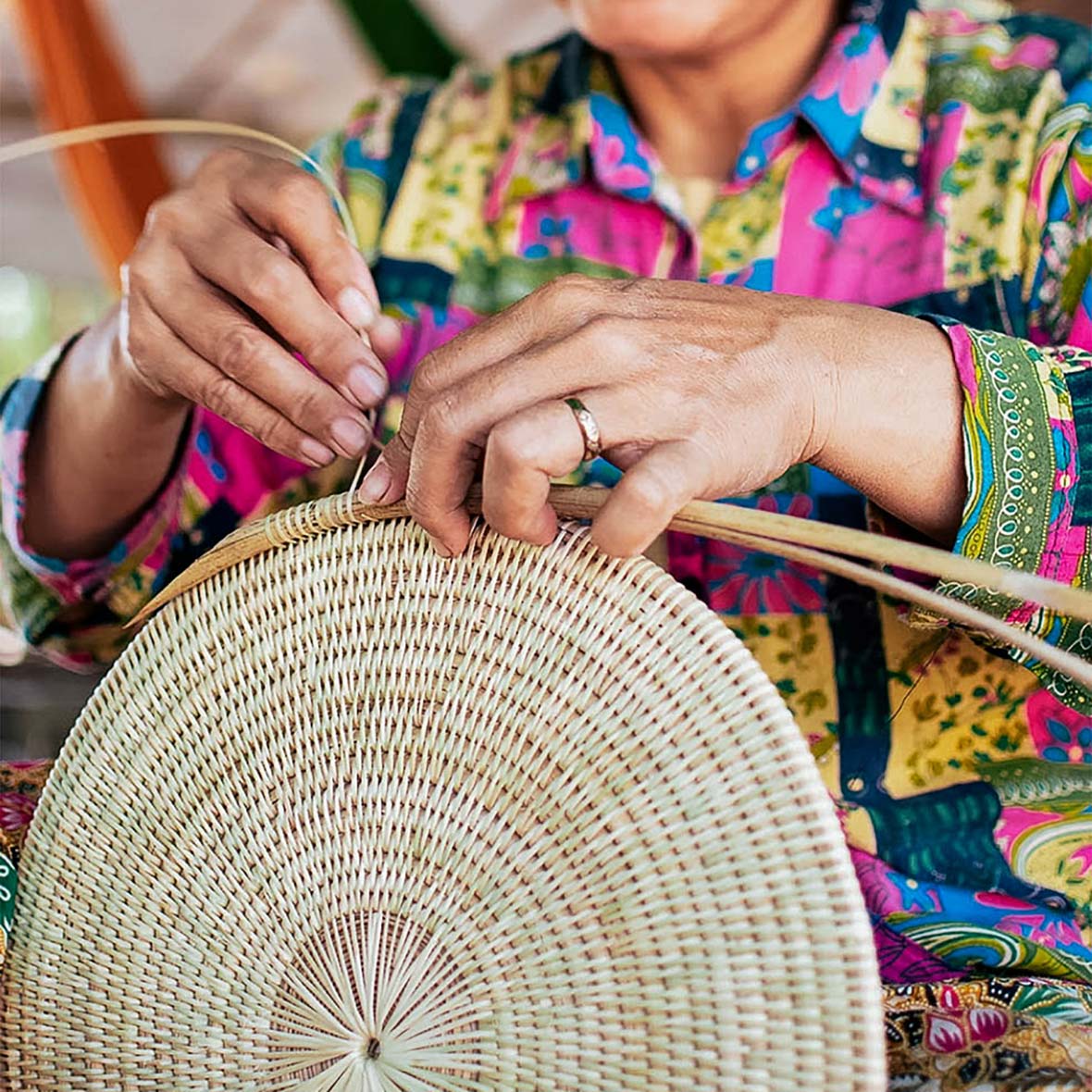
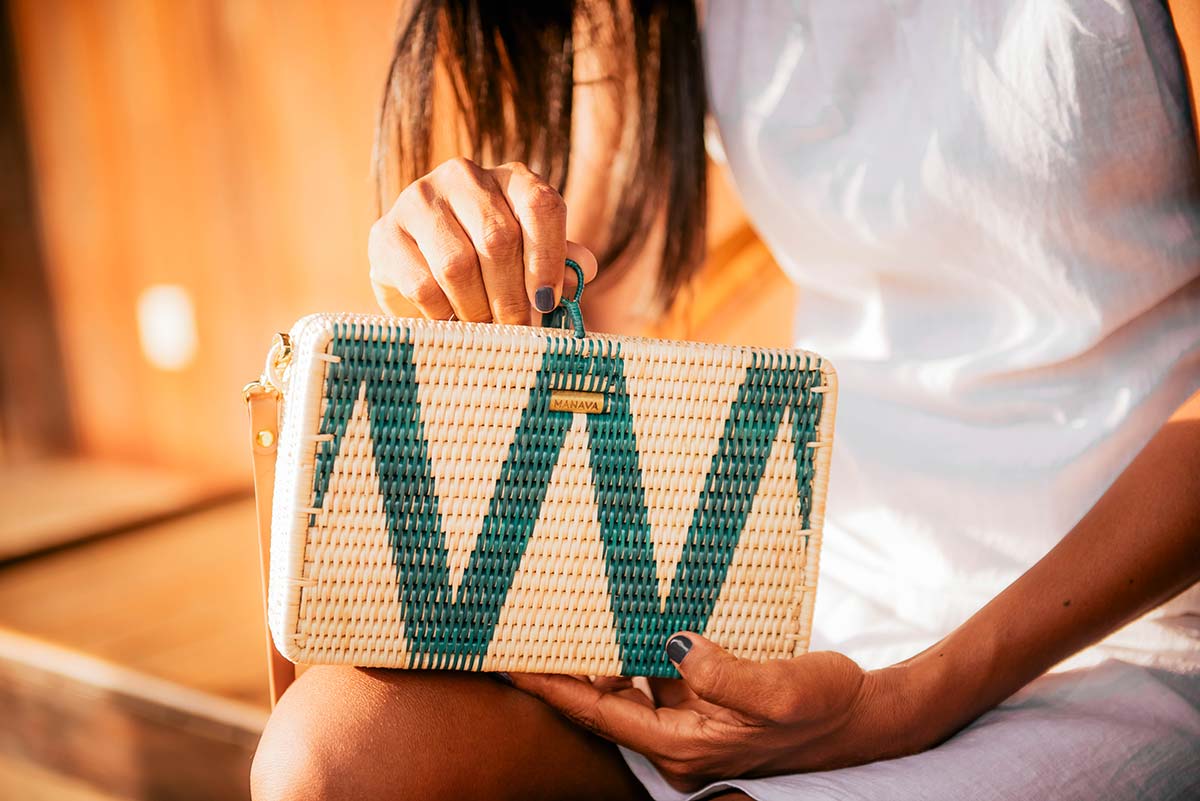
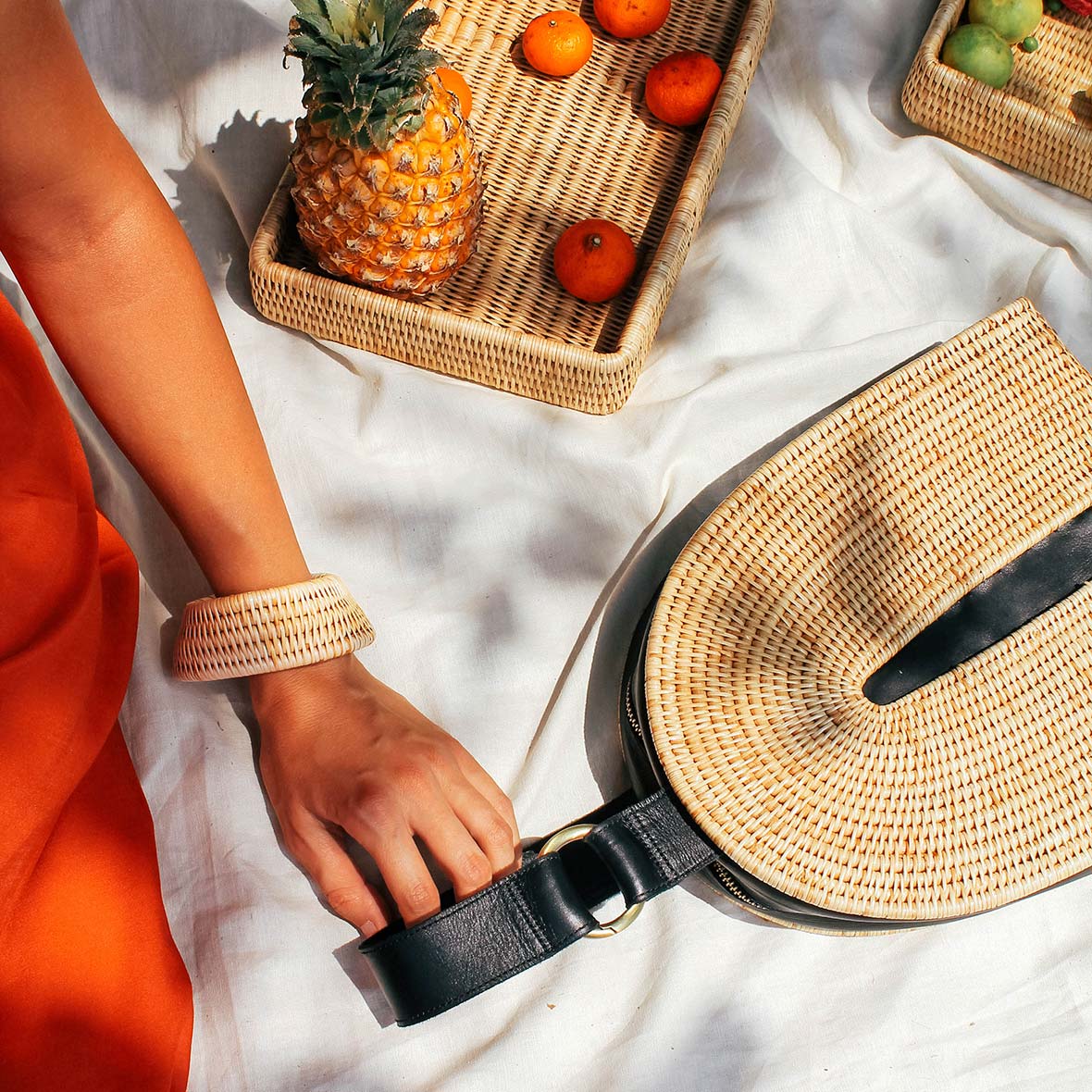
Another enterprise harnessing local nous and materials in Siem Reap is Manava.
Its striking homeware products (baskets, bags, accessories) are fashioned from pdau rattan palm and la paek willow grass, which are found in abundance along the area’s rivers.
The products are the work of experienced weavers: baskets are embellished with traditional kbach designs—decorative elements in Cambodian architecture found in local temples—with vivid use of colour to enhance their visual appeal. In return for their expertise, Manava empowers its 70 artisans by offering them fair wages.
“Three things are really important to me: nature, people and creation,” says co-founder Ka-Lai Chan, a Dutch designer. “These things give me energy and give life meaning. Even before visiting Cambodia, I had a deep desire to help people in a less developed country and to connect them with creativity and the arts.
“I took the opportunity to volunteer for two months with [a fellow Dutch lady conducting a project]. For me, it felt like the beginning of a dream come true. Life here is simple and the crafts are stunning.
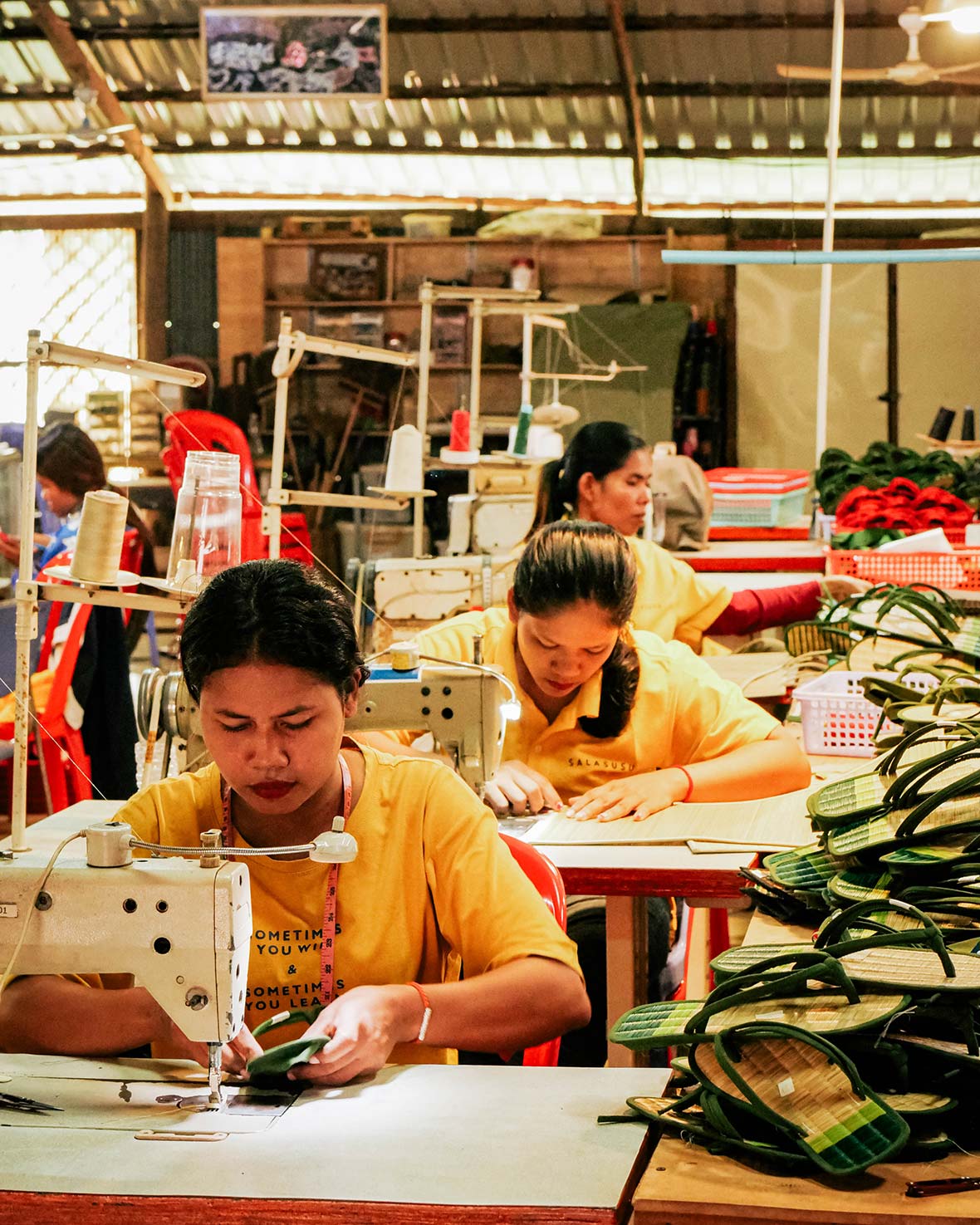
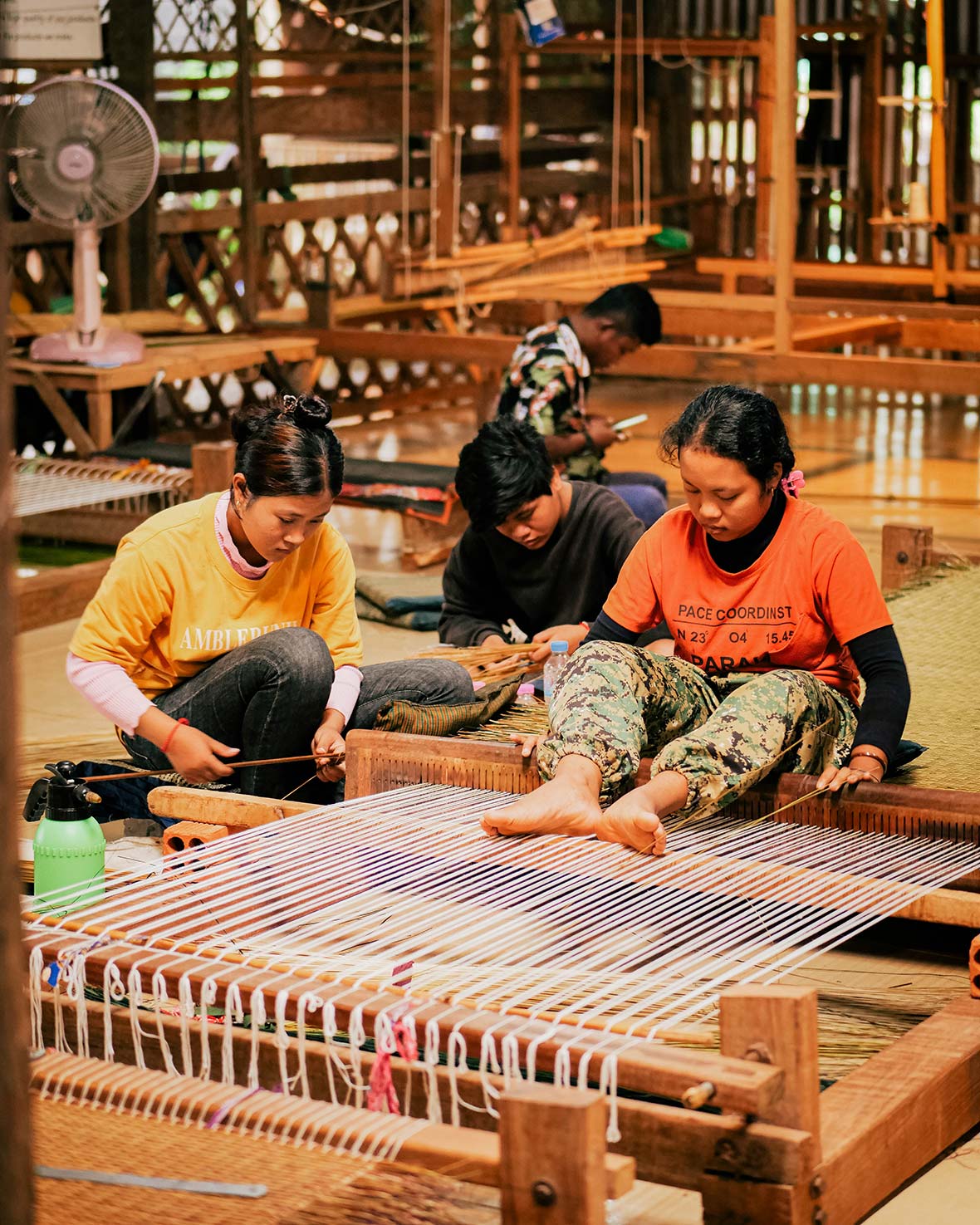
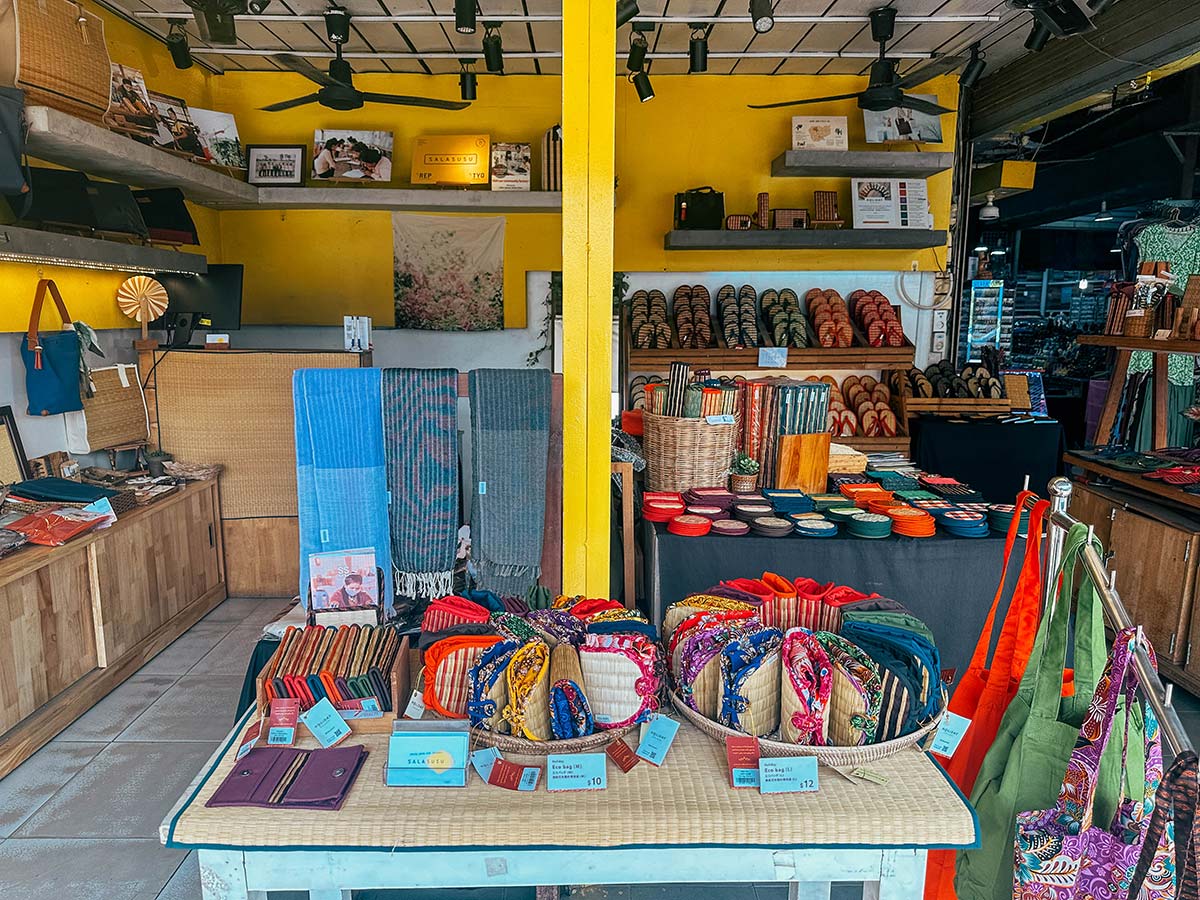
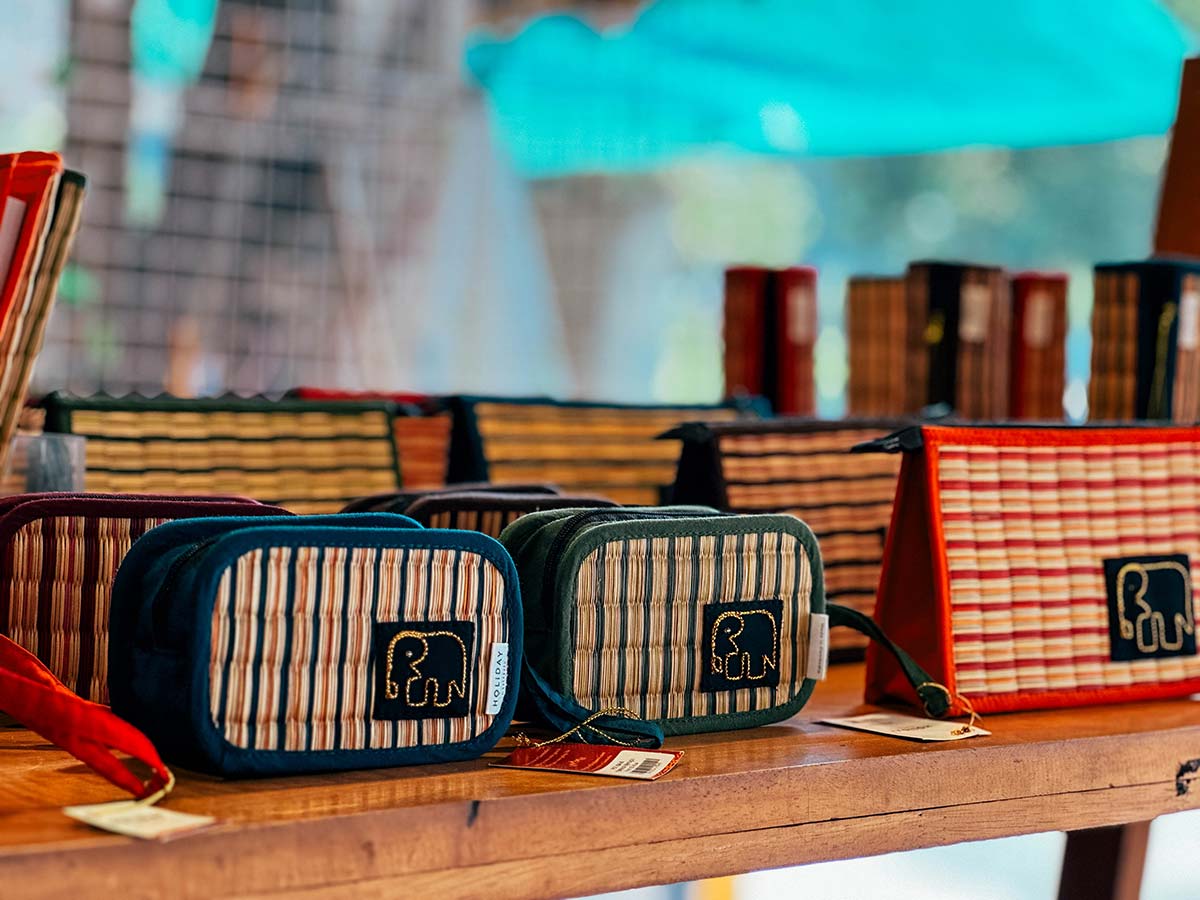
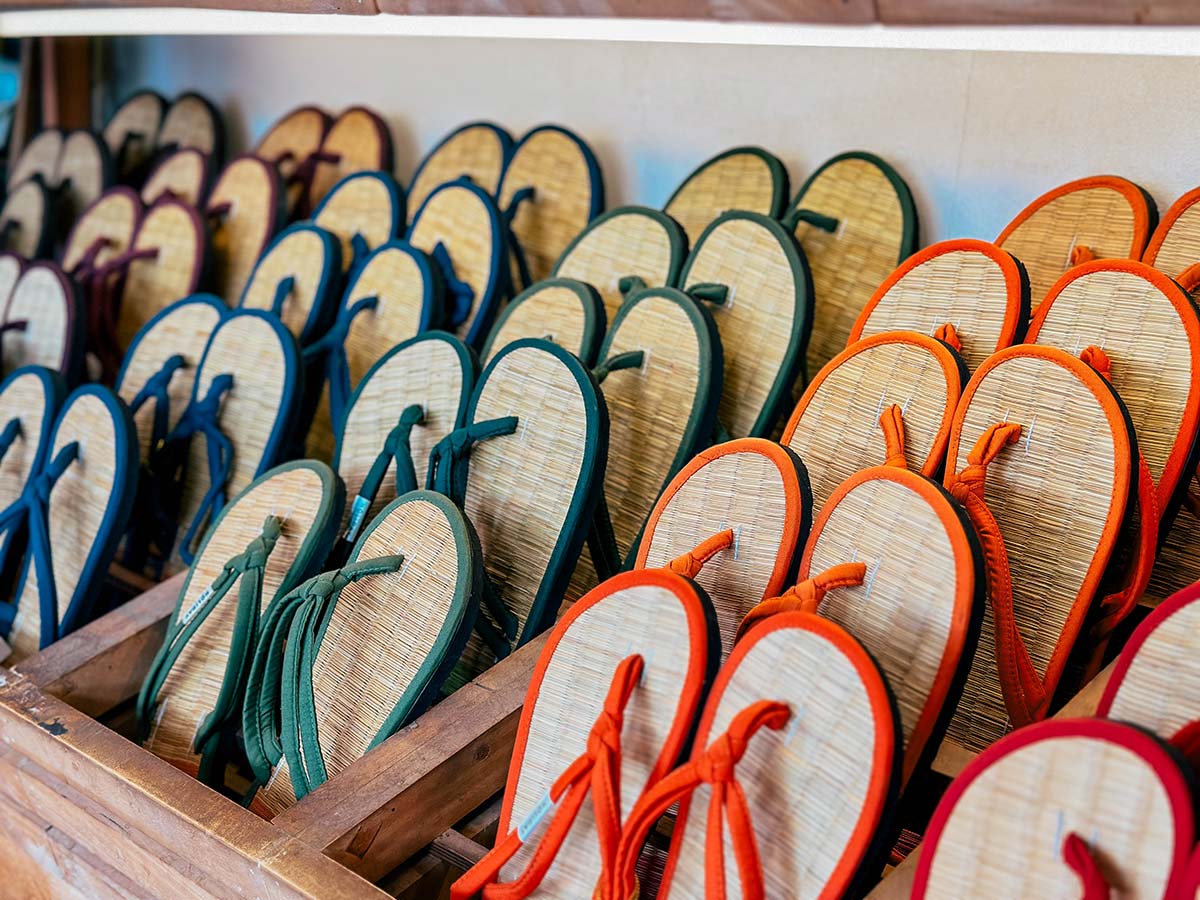
“While volunteering in Siem Reap, I did a lot of research on local traditional crafts and spent time with families in the countryside. Behind the smiles, I could see they were struggling with many challenges, most obviously their income level. Their average income then made it almost impossible for them to live within their means, yet many had such incredible weaving skills.”
After Ka-Lai met local creative Baraing Tho, Manava was born in 2016 but went full-time in mid-2018 as an online business – until its first physical store found its natural home on Siem Reap’s street of chic, Kandal Village, two years ago. Even on a road bursting with glamorous boutiques, the exoticism of Manava’s increasingly colorful products stands out alongside a range of light women’s clothing from local designers.
Operating along similar lines to Manava is Salasusu. Its name derives from the Khmer words susu (“cheer up”) and sala (“school”), the Japanese-owned enterprise with its factory base in Kchass Village was established in 2008, and trains female artisans to produce high-quality accessories using natural fibers, and offers them childcare, nutritious meals, life-skills and career coaching in return.
While many know the company through its souvenir shop at Siem Reap’s Old Market, the flagship store is within the rural factory. At both outlets, customers can enjoy Salasusu’s vibrant array of tote bags, coasters, sandals, laptop cases, placemats, stationery items, soap dishes and book covers—fashioned from lemongrass, lime leaf and grass rushes like rice plants, then dyed.
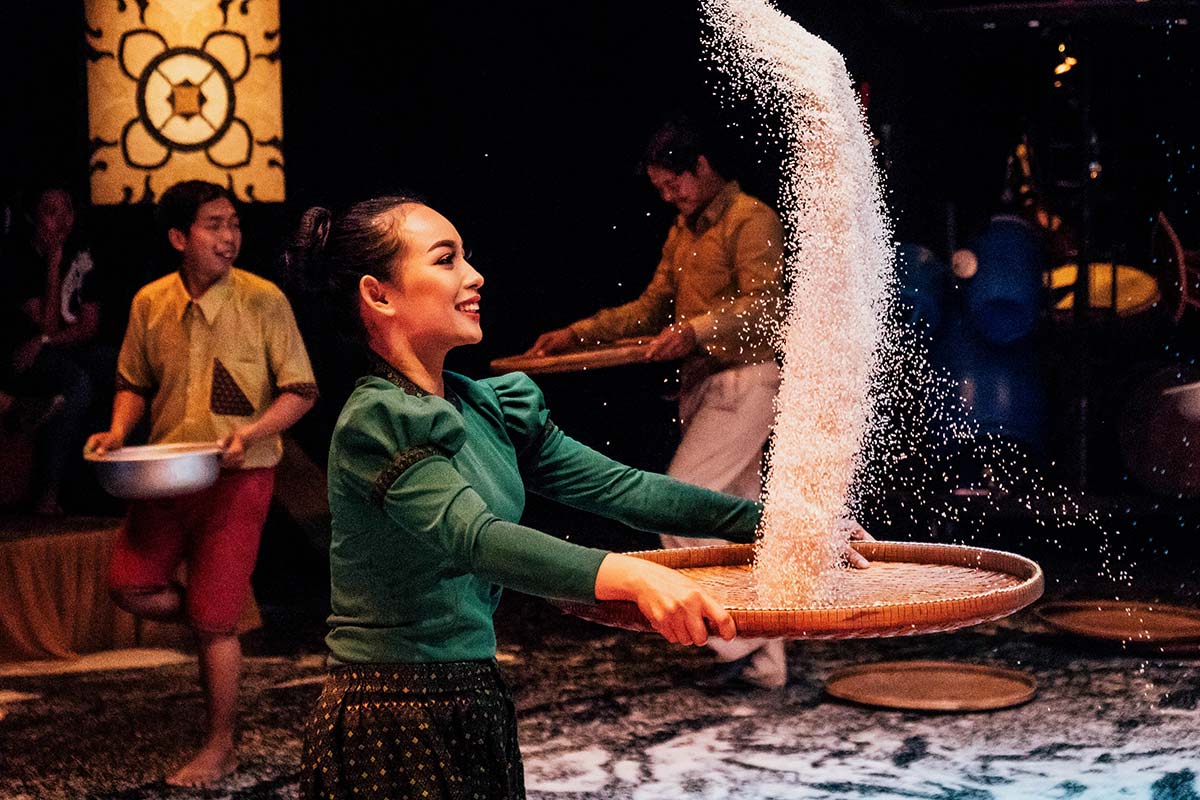
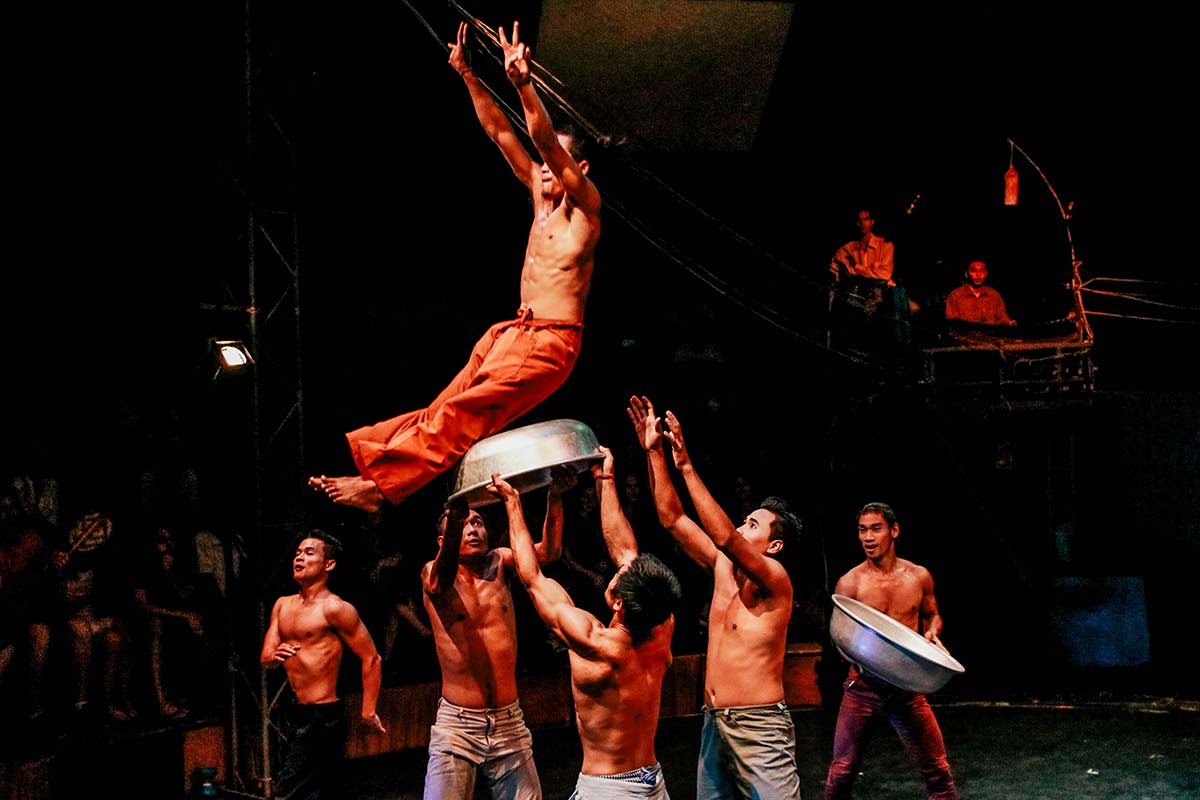
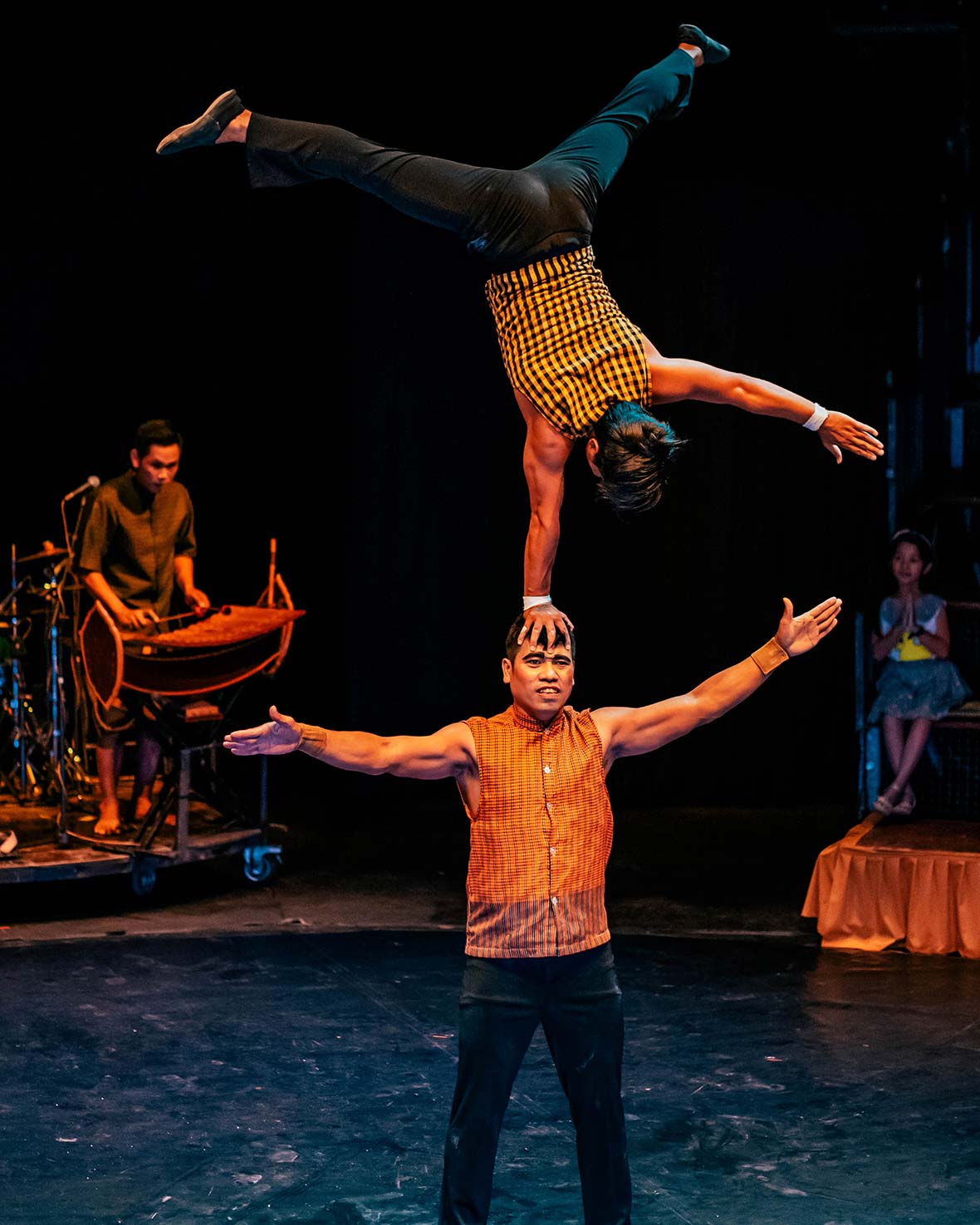
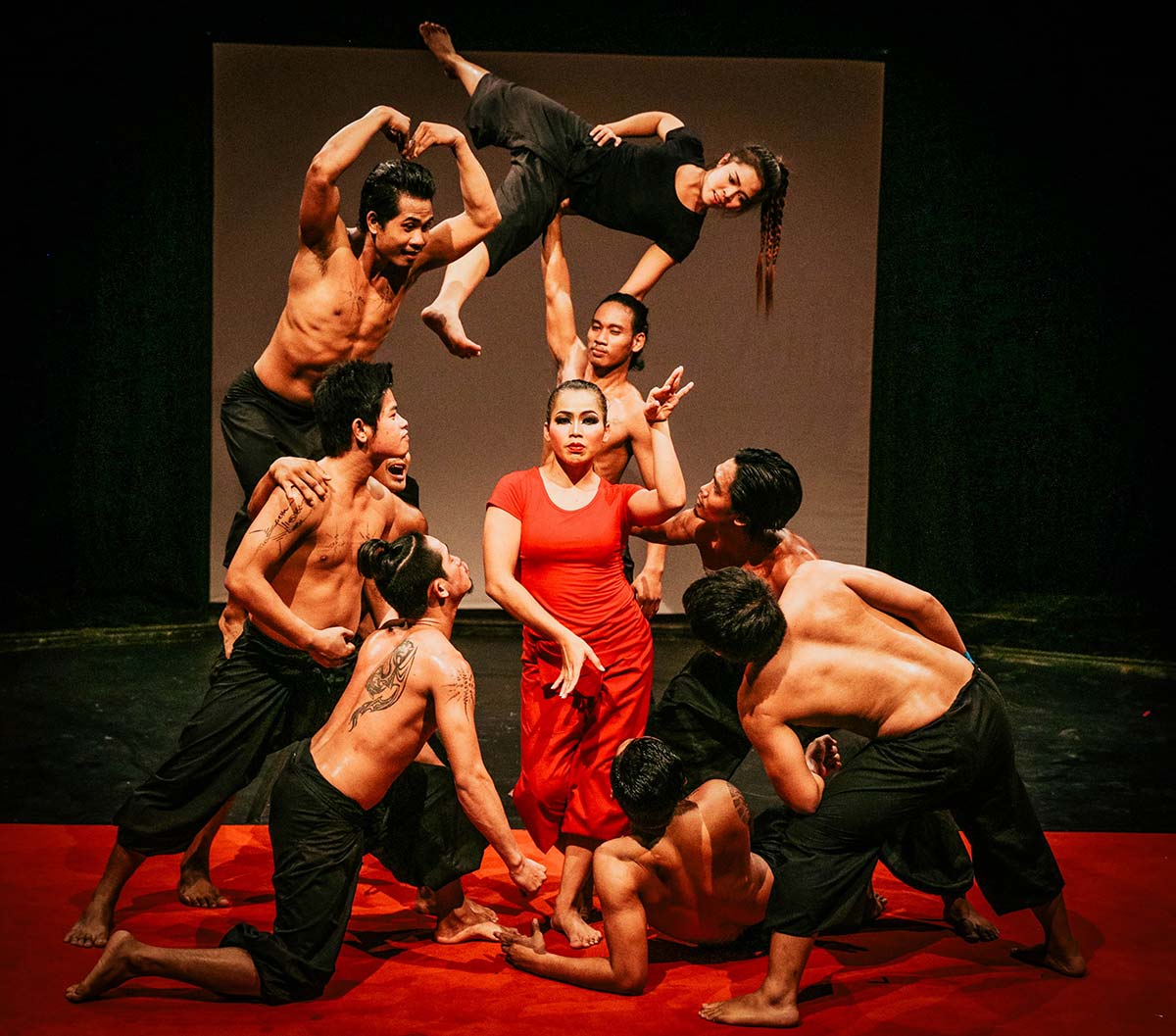
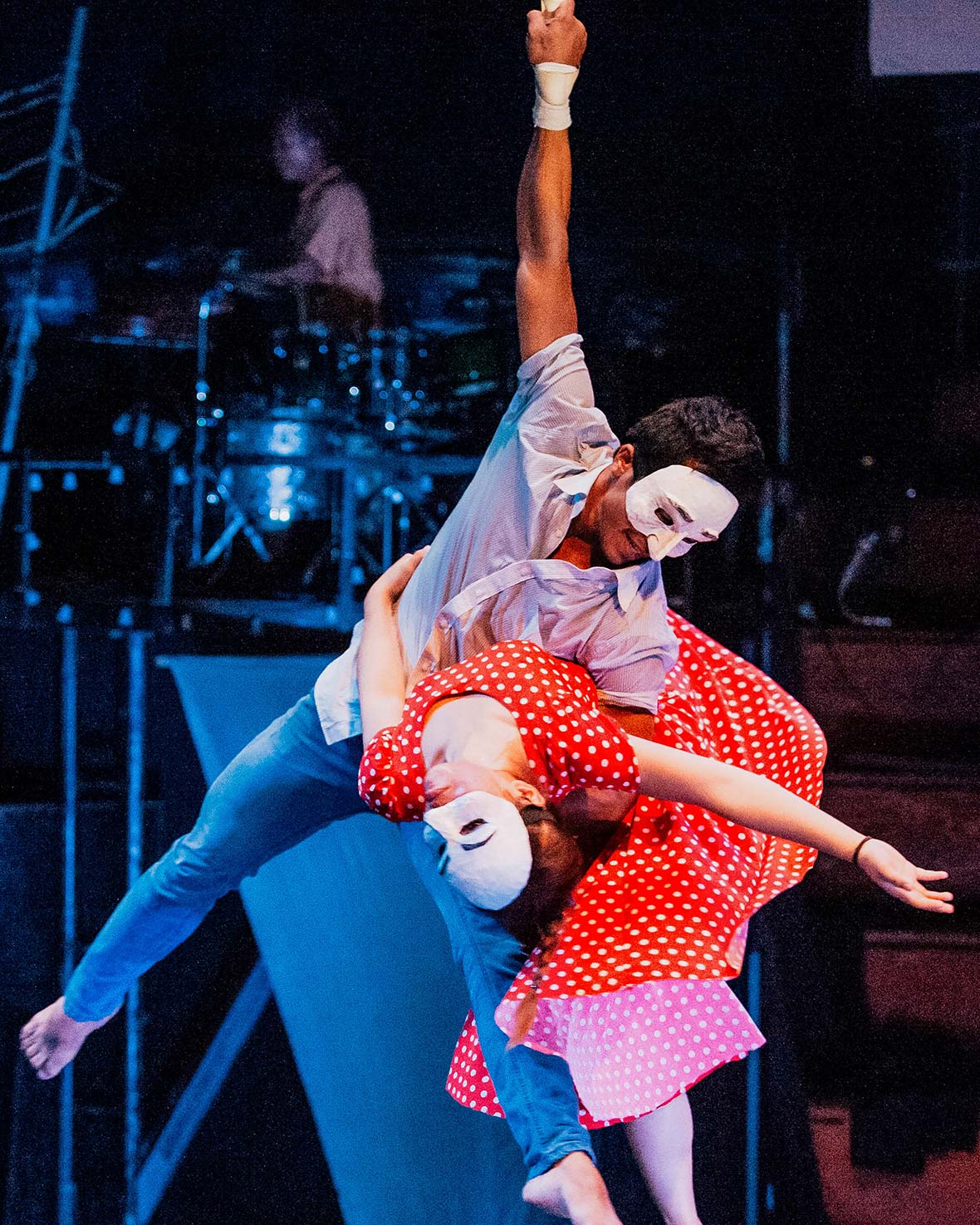
One of the most flamboyant—and famous — social enterprises in Siem Reap is none other than Phare, the Cambodian Circus.
The big top, its stage enclosed by a circular arrangement of seats, is the venue for enthralling nightly spectacles of Cirque de Soleil-esque acrobatic bravura to a musical backdrop, in regularly rotating themed performances.
Stories reflect the Cambodian character. Some are humorous, while others are tinged with melancholy. The protagonists act out stories from Cambodian folk tales and imaginatively illuminate issues relevant to local society.
Local street food is served on-site while the Phare Boutique’s colorful products made by the school’s students are also on sale, with profits donated to individual artists, helping them build a more hopeful future.
The remarkable parent company, Phare Ponleu Selpak, founded in the city of Battambang, was the brainchild of nine artistically inclined young refugees returning from refugee camps after the fall of the Khmer Rouge.
It now has more than 800 students enrolled in free performing and visual arts programs while also receiving a broader education.
